Facial pain felt around the cheekbone and toothaches are common complaints that can be confused with each other and negatively affect daily life. There may be a nighttime habit of clenching your teeth (bruxism) if you experience pain in your jaw or teeth, particularly upon waking up. The same holds true for the fact that a cracked tooth can occasionally cause abrupt tooth pain when eating. Tooth pain in the upper jaw and around the cheekbone can also be a sign of problems with nearby structures, like sinusitis.
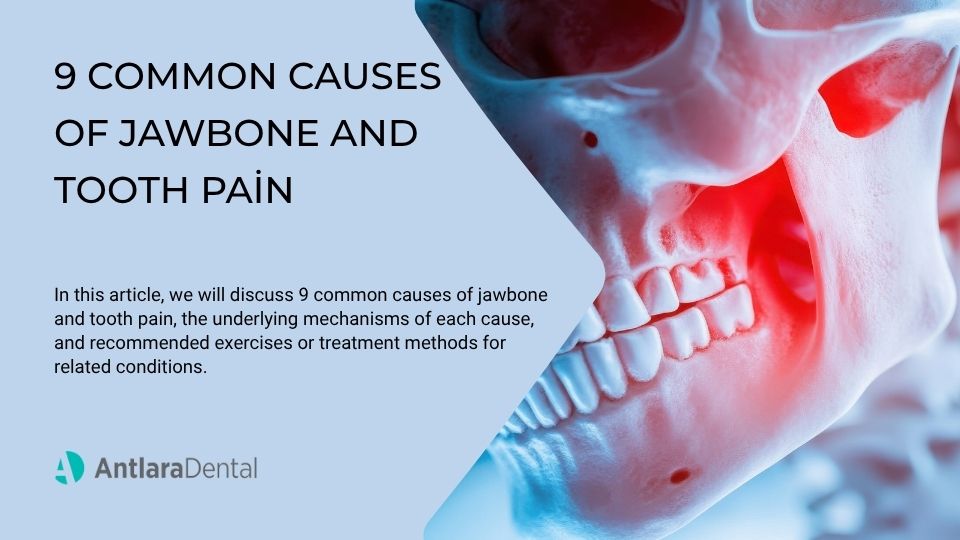
In this article, we will discuss 9 common causes of jawbone and tooth pain, the underlying mechanisms of each cause, and recommended exercises or treatment methods for related conditions.
1. Tooth decay and pulp inflammation
The inflammation and irritation of the pulp that results from tooth decay is the leading cause of toothaches. When decay that starts in the enamel of the tooth progresses and reaches the pulp tissue, severe pain occurs. As the decay progresses, the pain becomes more severe and constant, although it starts out as short throbbing episodes when eating hot or cold foods.
When a broken tooth or an extremely deep cavity exposes the pulp's nerves, it causes pain similar to that of a root canal. In such cases, you should see a dentist without delay to prevent the infection from spreading.
2. Gum diseases (gingivitis and periodontitis)
Gum disease generally manifests itself with redness, swelling, and bleeding in the gums, but in some cases it can also be perceived as referred pain. Especially in cases of advanced periodontitis, the inflammation spreads to the bone tissue surrounding the tooth and can cause dull pain and a feeling of looseness in the teeth.
Indecent and cold sensitivity are symptoms of gum recession, which is a result of gum disease and causes toothache. These kinds of pains typically come on suddenly in response to certain stimuli and go away as soon as they're no longer present.
3. Tooth fractures and cracks
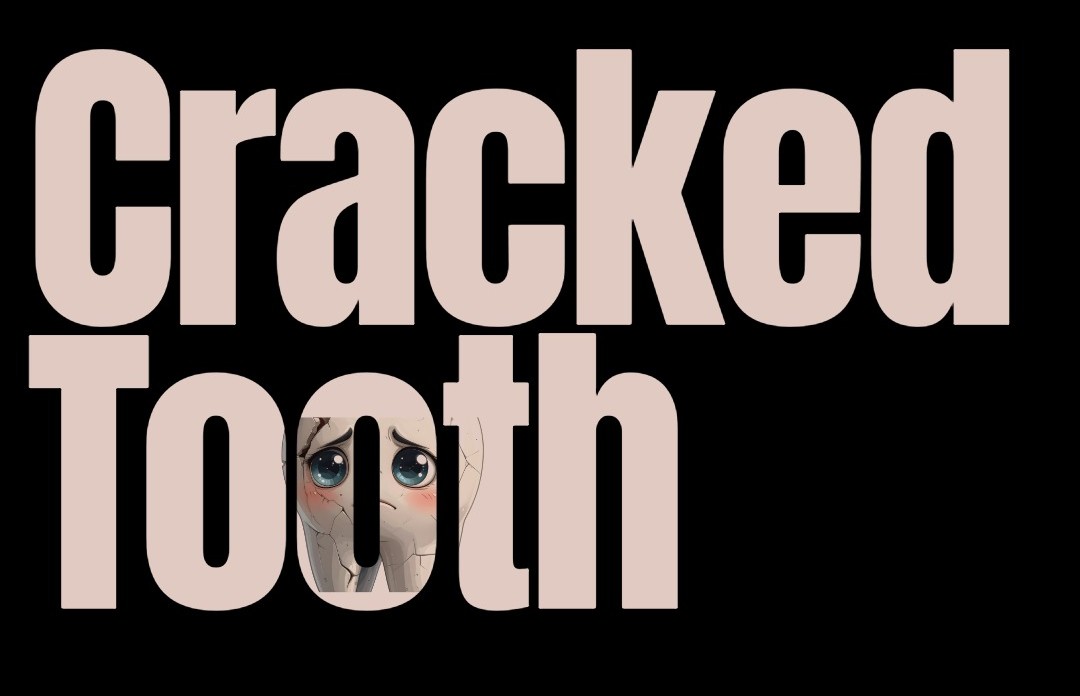
Cracks in the tooth enamel or a broken piece of the tooth may not always be clearly visible but can cause severe pain. In cases of cracked tooth syndrome, in particular, the patient often does not experience pain even though there is a tiny crack on the tooth that is not visible to the naked eye. However, when biting down on something hard or applying pressure to the cracked tooth while chewing, a sharp pain occurs; when chewing stops, the pain may suddenly disappear. The crack in the tooth structure opens and closes under pressure, causing this.
While some small cracks cause no symptoms, deep cracks can cause sensitivity to hot and cold and constant pain when they affect the tooth's nerve. The fracture may also be accompanied by a throbbing pain and swelling in the surrounding tissues if it is located in close proximity to the tooth's nerve or has reached the pulp.
4. Impacted or erupting teeth
A common issue that can cause pain in both the teeth and surrounding tissues is an impacted tooth, which is a tooth that either cannot erupt fully within the jaw or remains partially erupted. This is particularly common with wisdom teeth. Impacted wisdom teeth that are unable to fully erupt, resulting in pressure in the jaw, can cause soreness in neighbouring teeth and general jaw/cheek pain. The additional pressure exerted on the impacted tooth can result in excruciating pain in the morning, particularly if you have a tendency to grind your teeth at night.
Impacted teeth can cause not only pain, but also inflammation (pericoronitis), swelling, and trismus (limited mouth opening) in the surrounding tissues. Especially in the vicinity of a partially erupted wisdom tooth, the gum can easily become inflamed, resulting in both throbbing pain in the affected area and generalised ear and jaw pain. In fact, teeth buried near the sinuses in the upper jaw can even contribute to sinus-like facial pain by pressing on the sinus floor.
5. Teeth grinding and clenching (bruxism)
Teeth grinding or clenching, which is a prevalent issue that results in facial muscle and tooth pain, may occur unconsciously during sleep or throughout the day. This condition, bruxism, frequently leads to patients experiencing jaw, facial, and head pain upon awakening in the morning.
Bruxism-related pain usually subsides within a few hours after waking up in the morning, but in chronic cases, jaw fatigue and sensitivity may also be present throughout the day. The patient may feel tenderness in the masseter muscles when pressing on the cheek area; sometimes clicking and limited movement may also be observed in the jaw joint.
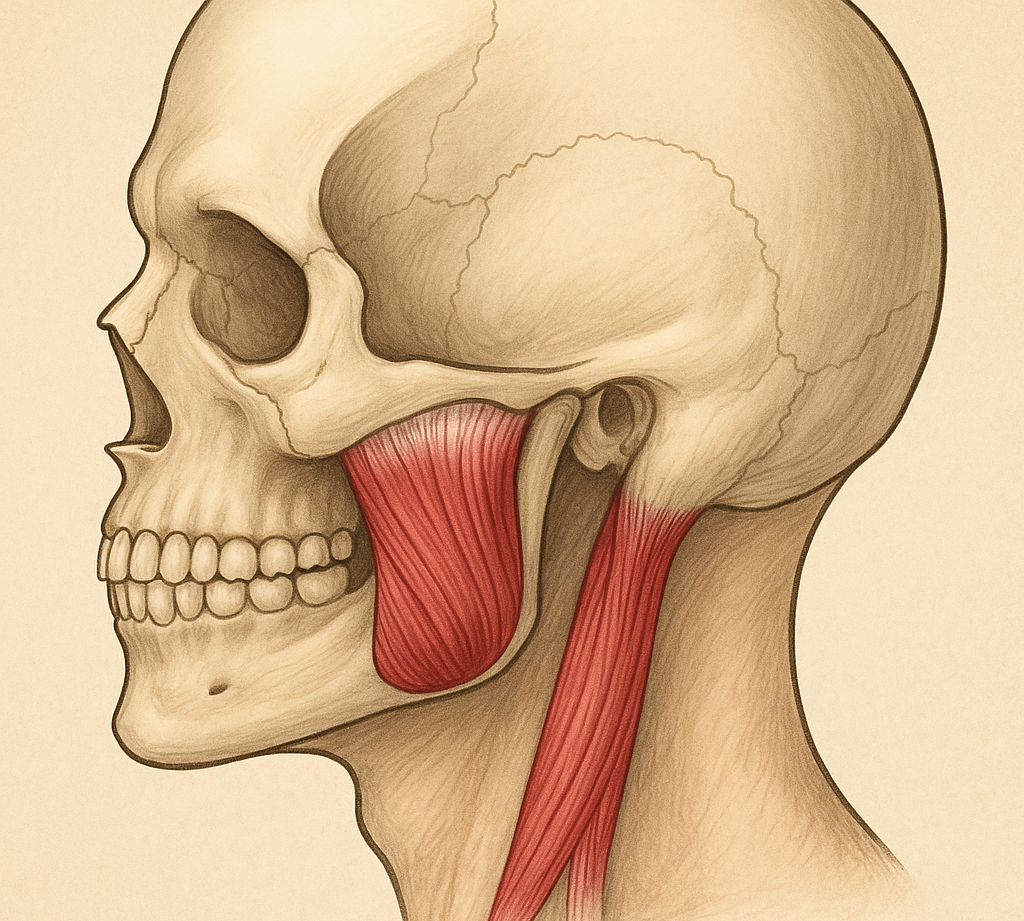
6. Temporomandibular joint disorders (jaw joint pain)
The temporomandibular joint (TMJ), which connects the lower jaw to the skull, is a complex structure that can be subjected to intense stress during movements such as chewing, speaking, and yawning. Any disorder affecting this joint or the surrounding muscles can cause pain both in the joint area and in the face.
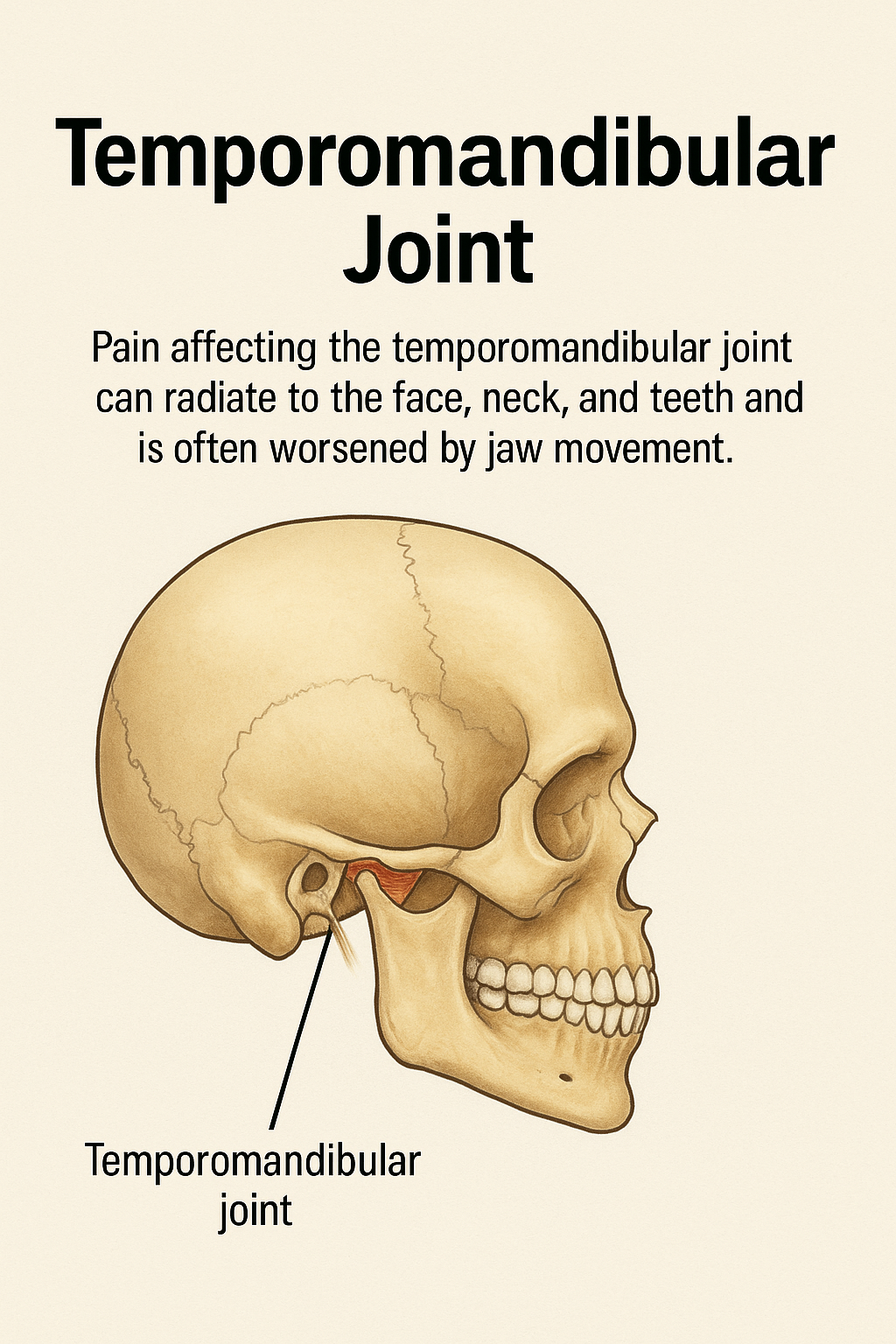
TMJ disorders include temporomandibular joint disc problems, joint inflammation (arthritis), jaw dislocation/subluxation, and muscle-related pain syndrome. Symptoms include clicking sounds in the jaw joint, limited or slipping movement when opening and closing the mouth, and tenderness and pain in the area in front of the ear.
Jaw joint pain is often confused with toothache because the pain can be felt not only in the joint but also in the cheeks, temples, and even the teeth. Inflammation or disc problems in the temporomandibular joint can cause pain that radiates to the cheekbone area and lower jaw teeth.
However, inflammation and irritation in the temporomandibular joint can cause pain in the face, neck, and teeth. Experiencing pain in your teeth and jaw when eating or talking could be due to joint dysfunction. So, it's important to check the jaw joint even if regular dental exams don't reveal anything wrong.
7. Sinusitis (sinus infections) and referred pain
Sinusitis is a significant medical condition that does not originate from teeth but rather affects the upper jaw area. The sinuses are hollow spaces in the cheekbones that are in close proximity to the roots of the upper molars. The maxillary sinus floor is adjacent to the roots of the upper jaw teeth, particularly the molars. Consequently, an infection or an increase in pressure in these sinuses can manifest as toothache-like pain. For the most part, patients are unable to pinpoint the precise location of the pain, which is typically experienced in multiple upper teeth simultaneously.
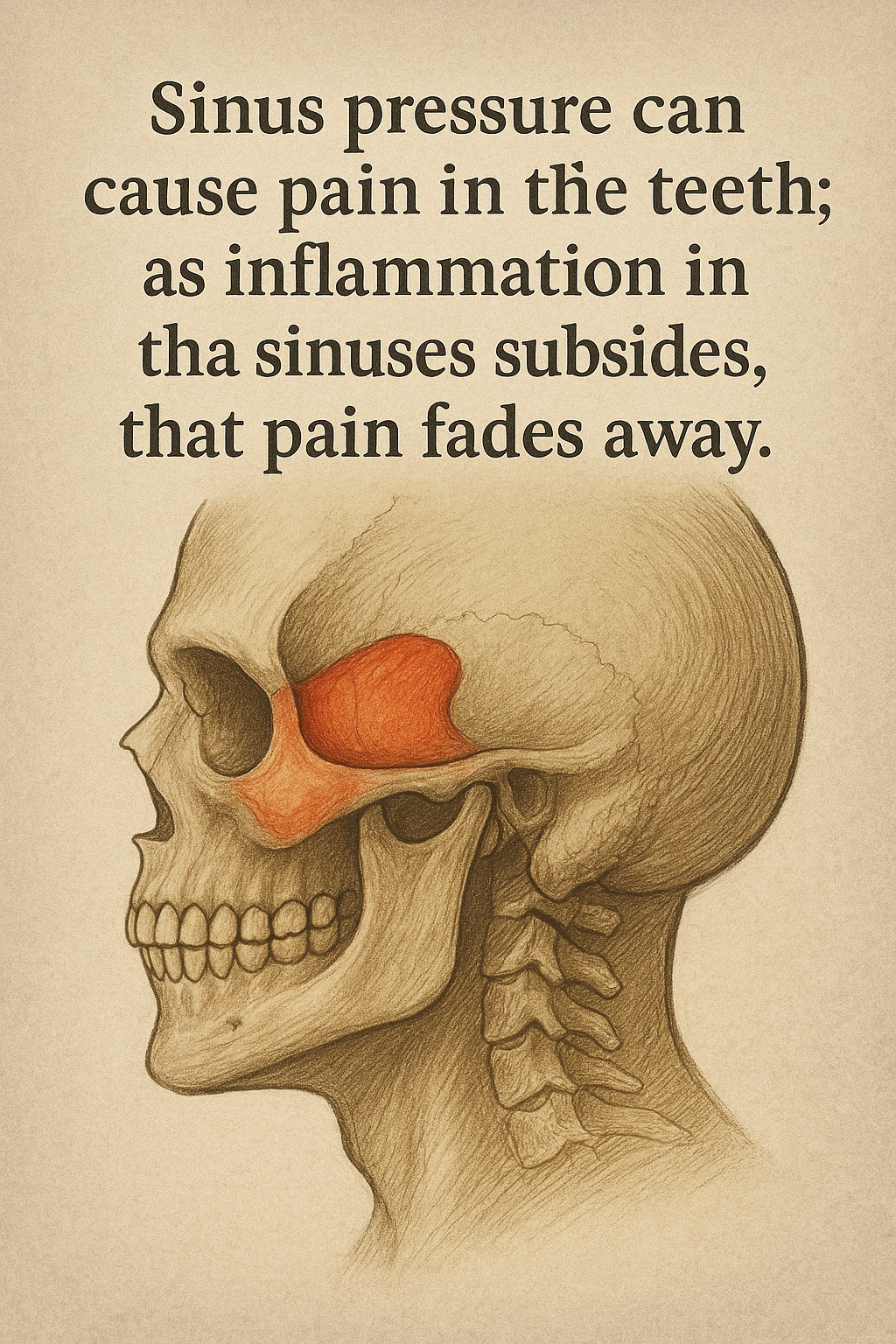
Typically, sinus-related tooth and facial pain is characterised by an increase in pain in response to changes in head position, such as bending forward or lying down. This is due to changes in the pressure of the inflammatory sinus fluid. In addition, tooth pain may be accompanied by symptoms such as nasal congestion, facial fullness, and headache in the presence of sinusitis.
8. Trigeminal neuralgia and neuropathic facial pain
Neurological reasons may be the source of certain facial and dental discomforts. It is a result of compression or damage to a branch of the trigeminal nerve, typically the upper or lower jaw nerve, that causes this condition. Patients with trigeminal neuralgia often believe this pain originates from a tooth and first consult a dentist. This is because the pain can be felt quite sharply in the jaw and tooth area and, in some cases, begins suddenly with triggering movements such as eating, talking, or washing the face.
The pain is usually felt on one side and lasts from seconds to several minutes, in the form of very severe stabbing pains. These episodes can happen multiple times a day, making the patient's life a living nightmare. Patients may sometimes go so far as to have healthy teeth extracted because they may think the pain is coming from the teeth. However, the problem is not with the teeth, but with the transmission of the nerve.
In addition to trigeminal neuralgia, rarer types of nerve pain such as atypical odontalgia (chronic tooth pain with no identifiable cause) or postherpetic neuralgia (pain in the facial nerve following shingles) can also cause chronic pain in the dental region.
9. Closing (biting) problems and old filling/capping issues
If your teeth do not make proper contact with one another, they may be subjected to excessive pressure during chewing. This can result in discomfort in the tooth or the surrounding tissue. Particularly after the placement of a new filling or crown, the patient may experience mild discomfort when biting down, which may indicate that the restoration is too high and necessitates revision (trimming).
Over time, old fillings may loosen or develop edge leakage, which can also cause pain. In addition, a loose filling piece can move when biting, putting pressure on the tooth. When a filling is loose, bacteria can seep underneath it and irritate your tooth and possibly your nerve.
FAQ's
When I eat sweets, I feel a brief twinge, then it goes away. What causes this?
This usually indicates early-stage tooth decay. Short-term sensitivity to sweet, hot, or cold foods stems from minor damage to the tooth enamel. It is important to see a dentist before the decay progresses; a simple filling may be sufficient. Early treatment prevents nerve inflammation and root canal treatment.
My gums are swollen and bleeding, but the pain seems to be coming from the tooth. Could this be caused by the gums?
It is most likely the onset of gum inflammation (gingivitis). When the gum tissue becomes inflamed, the pain sometimes feels as if it is coming from the tooth. In advanced cases, periodontitis can develop, so early detection is important.
When I bite something, I suddenly feel a sharp pain, which goes away when I stop. Could it be a crack?
Yes, this description fits cracked tooth syndrome. When there is a microscopic crack in the tooth, it opens during biting and puts pressure on the nerve.
I wake up with sore and tired jaw muscles in the morning. What could be the reason for this?
This type of pain is usually a symptom of bruxism (teeth grinding). When teeth are clenched unconsciously during sleep, the masseter muscles tense up, causing jaw fatigue in the morning.
Several of my upper teeth hurt at the same time, and the pain increases when I bend forward. What could be the cause of this?
This is a typical symptom of maxillary sinusitis. Increased pressure in the sinuses reflects on the upper tooth roots, making it feel as if all teeth are aching. The fact that the pain increases when the head position changes also indicates that it is sinus-related. Treatment should be performed by an ENT specialist; the toothache subsides as the sinuses are cleared.
I get short, intense attacks on my face, like electric shocks. I think it's from my teeth, but it doesn't go away.
This definition is consistent with Trigeminal Neuralgia. It causes pain in the trigeminal nerve area of the face, similar to a second-long electric shock. It is not caused by teeth; it is a neurological condition. A neurological evaluation is required instead of dental treatment; it is usually treated with medications that reduce nerve pressure.
After getting a new filling, one of my teeth hurts when I bite down. What could be the reason for this?
If the filling is too high, excessive pressure is placed on that tooth during chewing, causing pain. This situation can be easily corrected by a dentist through measurement. When necessary, the filling surface is filed down or reshaped. If treatment is delayed, sensitivity in the tooth nerve may develop.
A small piece of my tooth broke off; it's throbbing right now. What should I do at home, and how will it be treated at the clinic?
Result
If you experience pain in the cheekbone area whose cause you cannot identify, dental clinics should be your first port of call. After that, you may need to be examined by ENT specialists and neurologists. Finding the source of this pain, which reduces your quality of life, should definitely not be neglected, because whether the pain is caused by your teeth or something else, it will continue to increase in intensity and reduce your quality of life if left untreated.
